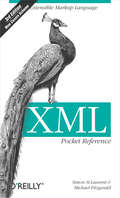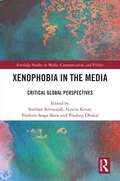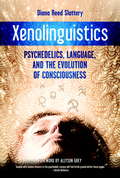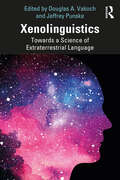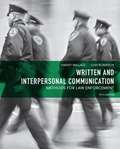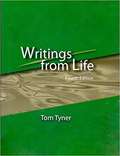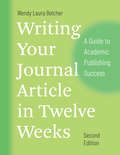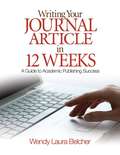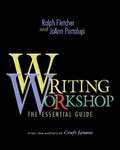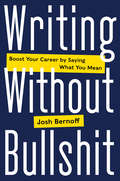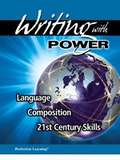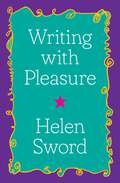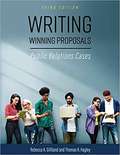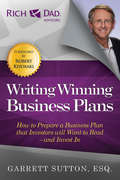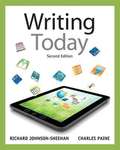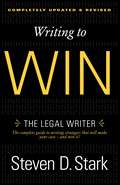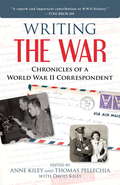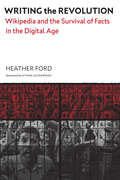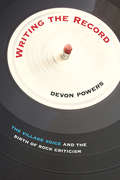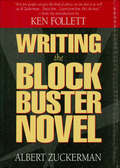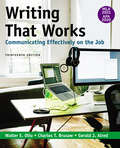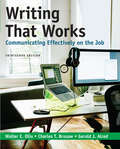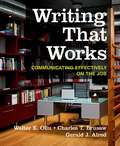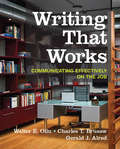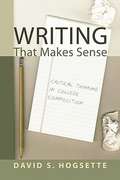- Table View
- List View
XML Pocket Reference: Extensible Markup Language (Pocket Reference (O'Reilly))
by Simon St. Laurent Michael FitzgeraldXML, the Extensible Markup Language, is everywhere: the syntax of choice for newly designed document formats across almost all computer applications. Now used daily by developers, XML is living up to its reputation as one of the most important developments in document interchange in the history of computing. A perennial bestseller, the handy XML Pocket Reference from O'Reilly has been revised once again to give you quick access to the latest goods. In addition to its comprehensive look at XML, this third edition has been updated with new material on Namespaces and XML Schema--considered among the most important elements in current XML use--along with RELAX NG and Schematron, additional powerful tools for describing XML document structures. Like other titles in O'Reilly's Pocket Reference series, the XML Pocket Reference, 3rd Edition features a well-organized format that gets right to the point. As a result, it's already won over the allegiance of developers everywhere. If you need XML answers quick and on the fly, this compact book is most definitely the book for you.
Xenophobia in the Media: Critical Global Perspectives (Routledge Studies in Media, Communication, and Politics)
by Senthan Selvarajah Nesrin Kenar Ibrahim Seaga Shaw Pradeep DhakalThrough its global and critical perspectives, this book brings together knowledge, ideas, and tools to understand the problems and identify effective solutions, best practices and alternative approaches to combat xenophobia in the media and build tolerance and social cohesion. Although various studies have been conducted on the extent to which the media construct xenophobic discourse against immigrants and refugees and how they represent immigrants, there exists a research lacuna as to the dynamics of the xenophobia construction in the media, the effect of xenophobic discourse of the media and its function, the nexus between xenophobia construction of the media and the social, economic and political conditions, and the impact of the xenophobic discourse of the media on immigrants and host communities. This book adds knowledge and empirical evidence to fill this research gap. This book will be an important resource for journalists, scholars and students of media and communication studies, journalism, political science, sociology, and anyone covering issues of race and racism, human rights, immigration and refugees.
Xenolinguistics
by Diana Slattery Allyson GreyAre language and consciousness co-evolving? Can psychedelic experience cast light on this topic? In the Western world, we stand at the dawn of the psychedelic age with advances in neuroscience; a proliferation of new psychoactive substances, both legal and illegal; the anthropology of ayahuasca use; and new discoveries in ethnobotany. From scientific papers to the individual trip reports on the Vaults of Erowid and the life work of Terence McKenna, Alexander and Ann Shulgin, and Stanislav Grof, we are converging on new knowledge of the mind and how to shift its functioning for therapeutic, spiritual, problem-solving, artistic and/or recreational purposes. In our culture, pychonautics, the practices of individuals and small groups using techniques such as meditation, shamanic ritual, ecstatic dance and substances such as LSD and psilocybin for personal exploration, is a field of action and thought in its infancy. The use of psychonautic practice as a site of research and a method of knowledge production is central to this work, the first in-depth book focusing on psychedelics, consciousness, and language. Xenolinguistics documents the author's eleven-year adventure of psychonautic exploration and scholarly research; her original intent was to understand a symbolic language system, Glide, she acquired in an altered state of consciousness. What began as a deeply personal search, led to the discovery of others, dubbed xenolinguists, with their own unique linguistic objects and ideas about language from the psychedelic sphere. The search expanded, sifting through fields of knowledge such as anthropology and neurophenomenology to build maps and models to contextualize these experiences. The book presents a collection of these linguistic artifacts, from glossolalia to alien scripts, washed ashore like messages in bottles, signals from Psyche and the alien Others who populate her hyperdimensional landscapes. With an entire chapter dedicated to Terence and Dennis McKenna and sections dedicated to numerous other xenolinguists, this book will appeal to those interested in language/linguistics and the benefits of psychedelic self-exploration, and to readers of science fiction.
Xenolinguistics: Towards a Science of Extraterrestrial Language
by Douglas A. Vakoch Jeffrey PunskeXenolinguistics brings together biologists, anthropologists, linguists, and other experts specializing in language and communication to explore what non-human, non-Earthbound language might look like. The 18 chapters examine what is known about human language and animal communication systems to provide reasonable hypotheses about what we may find if we encounter non-Earth intelligence. Showcasing an interdisciplinary dialogue between a set of highly established scholars, this volume: Clarifies what is and is not known about human language and animal communication systems Presents speculative arguments as a philosophical exercise to help define the boundaries of what our current science can tell us about non-speculative areas of investigation Provides readers with a clearer sense of the how our knowledge about language is better informed through a cross-disciplinary investigation Offers a better understanding of future avenues of research on language This rich interdisciplinary collection will be of interest to researchers and students studying non-human communication, astrobiology, and language invention.
Written and Interpersonal Communication: Methods for Law Enforcement, Fifth Edition
by Harvey Wallace Cliff RobersonWritten and Interpersonal Communication Methods for Law Enforcement is a practical and easy to read guide to oral and written communications in the law enforcement and criminal justice fields. It helps students master communication skills, theories, and issues; provides practical examples and exercises; and includes helpful guides for improving spelling, vocabulary, and overall writing. The text includes both general theories and techniques to improve communication, and specific guidelines for writing documents common in the field, such as affidavits and search warrants.
Writings From Life, Fourth Edition
by Tom TynerWritings from Life is a process-oriented writing textbook that helps students continue to grow and improve as writers. Students learn by writing, and the textbook provides a variety of writing assignments that require students to develop and apply different writing and thinking skills as they progress through the book.
Writing Your Journal Article in Twelve Weeks: A Guide to Academic Publishing Success (Chicago Guides to Writing, Editing and Publishing)
by Wendy Laura Belcher"Wow. No one ever told me this!" Wendy Laura Belcher has heard this countless times throughout her years of teaching and advising academics on how to write journal articles. Scholars know they must publish, but few have been told how to do so. So Belcher made it her mission to demystify the writing process. The result was Writing Your Journal Article in Twelve Weeks, which takes this overwhelming task and breaks it into small, manageable steps. For the past decade, this guide has been the go-to source for those creating articles for peer-reviewed journals. It has enabled thousands to overcome their anxieties and produce the publications that are essential to succeeding in their fields. <p><p>With this new edition, Belcher expands her advice to reach beginning scholars in even more disciplines. She builds on feedback from professors and graduate students who have successfully used the workbook to complete their articles. A new chapter addresses scholars who are writing from scratch. <p><p>This edition also includes more targeted exercises and checklists, as well as the latest research on productivity and scholarly writing. Writing Your Journal Article in Twelve Weeks is the only reference to combine expert guidance with a step-by-step workbook. Each week, readers learn a feature of strong articles and work on revising theirs accordingly. Every day is mapped out, taking the guesswork and worry out of writing. There are tasks, templates, and reminders. At the end of twelve weeks, graduate students, recent PhDs, postdoctoral fellows, adjunct instructors, junior faculty, and international faculty will feel confident they know that the rules of academic publishing and have the tools they need to succeed.
Writing Your Journal Article in Twelve Weeks: A Guide to Academic Publishing Success
by Wendy Laura BelcherA comprehensive, well-written and beautifully organized book on publishing articles in the humanities and social sciences that will help its readers write forward with a first-rate guide as good company. ' - Joan Bolker, author of Writing Your Dissertation in Fifteen Minutes a Day `Humorous, direct, authentic ... a seamless weave of experience, anecdote, and research. ' - Kathleen McHugh, professor and director of the UCLA Center for the Study of Women Wendy Laura Belcher's Writing Your Journal Article in Twelve Weeks: A Guide to Academic Publishing Success is a revolutionary approach to enabling academic authors to overcome their anxieties and produce the publications that are essential to succeeding in their fields. Each week, readers learn a particular feature of strong articles and work on revising theirs accordingly. At the end of twelve weeks, they send their article to a journal. This invaluable resource is the only guide that focuses specifically on publishing humanities and social science journal articles.
Writing Workshop: The Essential Guide
by Ralph J. Fletcher Joann Portalupi Ralph FletcherIs the writing workshop the only way to teach writing? No. There are a variety of approaches or programs, but none of them matches the writing workshop when it comes to growing strong writers. That's why, despite the pressures of testing, the writing workshop has endured and even flourished in thousands of schools across the country. Today we face a time when as many as ten million new teachers are entering the profession. It is for these teachers, and others who are unfamiliar with writing workshop, that Ralph Fletcher and JoAnn Portalupi wrote this book - as a way to introduce and explain the writing workshop . . . to reveal what a potent tool the writing workshop can be for empowering young writers. Above all Writing Workshop is a practical book, providing everything a teacher needs to get the writing workshop up and running. In clear language, Fletcher and Portalupi explain the simple principles that underlie the writing workshop and explore the major components that make it work. Each chapter addresses an essential element, then suggests five or six specific things a teacher can do to implement the idea under discussion. There's also a separate chapter entitled "What About Skills," which shows how to effectively teach skills in the context of writing. The book closes with practical forms in the appendixes to ensure that the workshop runs smoothly. Fletcher and Portalupi's twenty-plus years working with teachers have convinced them that there is no better way to teach writing. This important book is the culmination of all their years of effort, a synthesis of their best thinking on the subject.
Writing Without Bullshit: Boost Your Career by Saying What You Mean
by Josh BernoffJoining the ranks of classics like The Elements of Style and On Writing Well, Writing Without Bullshit helps professionals get to the point to get ahead. It’s time for Writing Without Bullshit.Writing Without Bullshit is the first comprehensive guide to writing for today’s world: a noisy environment where everyone reads what you write on a screen. The average news story now gets only 36 seconds of attention. Unless you change how you write, your emails, reports, and Web copy don’t stand a chance.In this practical and witty book, you’ll learn to front-load your writing with pithy titles, subject lines, and opening sentences. You’ll acquire the courage and skill to purge weak and meaningless jargon, wimpy passive voice, and cowardly weasel words. And you’ll get used to writing directly to the reader to make every word count.At the center of it all is the Iron Imperative: treat the reader’s time as more valuable than your own. Embrace that, and your customers, your boss, and your colleagues will recognize the power and boldness of your thinking.Transcend the fear that makes your writing weak. Plan and execute writing projects with confidence. Manage edits and reviews flawlessly. And master every modern format from emails and social media to reports and press releases.Stop writing to fit in. Start writing to stand out. Boost your career by writing without bullshit.
Writing with Pleasure (Skills for Scholars)
by Helen SwordAn essential guide to cultivating joy in your professional and personal writingWriting should be a pleasurable challenge, not a painful chore. Writing with Pleasure empowers academic, professional, and creative writers to reframe their negative emotions about writing and reclaim their positive ones. By learning how to cast light on the shadows, you will soon find yourself bringing passion and pleasure to everything you write.Acclaimed international writing expert Helen Sword invites you to step into your “WriteSPACE”—a space of pleasurable writing that is socially balanced, physically engaged, aesthetically nourishing, creatively challenging, and emotionally uplifting. Sword weaves together cutting-edge findings in the sciences and social sciences with compelling narratives gathered from nearly six hundred faculty members and graduate students from across the disciplines and around the world. She provides research-based principles, hands-on strategies, and creative “pleasure prompts” designed to help you ramp up your productivity and enhance the personal rewards of your writing practice. Whether you’re writing a scholarly article, an administrative email, or a love letter, this book will inspire you to find delight in even the most mundane writing tasks and a richer, deeper pleasure in those you already enjoy.Exuberantly illustrated by prizewinning graphic memoirist Selina Tusitala Marsh, Writing with Pleasure is an indispensable resource for academics, students, professionals, and anyone for whom writing has come to feel like a burden rather than a joy.
Writing Winning Proposals: Public Relations Cases
by Rebecca Deemer Thomas HagleyWriting Winning Proposals: Public Relations Cases teaches students, as well as practitioners, how to conceptualize and write public relations plans and proposals from the perspective of the plan reviewer — typically non-public relations practitioners. <P><P> The process illustrated within the book is designed to win approval from the plan reviewers and to foster a path for award-winning plan writing. The book thoroughly describes components of the plan, and then provides many actual cases to further demonstrate the strategy and thought process behind plan construction. The cases have multiple suggested writing assignments, role plays, and case problems. These help students and practitioners explore progression of plan construction in various avenues where public relations may be required and practiced. Cases highlighting community relations and engagement, media relations, employee relations and empowerment, government relations, crisis management and prevention, risk communication, corporate communication, social media implementation, arts and entertainment, corporate communication, social responsibility, promotional endeavors, and event planning are all included. <P><P> Writing Winning Proposals is ideal for introductory public relations courses, as well as courses in public relations writing, plans, and campaigns. It can also be used as an academic text supplement, a campaigns workbook, or for strategic planning. <P><P> Rebecca A. Gilliland is a distinguished professor of service learning and an associate professor of communication at the University of Indianapolis. A Fulbright Scholar and a Plank Fellow, Professor Gilliland has traveled the United States and around the world in an effort to stay current in the public relations industry while studying her areas of interest. She advises a nationally award-winning student run public relations firm and has taught numerous public relations classes. She has worked abroad and domestically, in sports promotions, corporate public relations, and in the non-profit sector. She is accredited in public relations and earned a doctorate in education with cognates in both public relations and communication studies. <P><P> Thomas R. Hagley is a senior instructor of public relations retired from the University of Oregon’s School of Journalism and Communication. A recipient of the school’s Jonathan Marshall Award for innovative teaching, he has taught more than 50 classes in public relations principles, advanced writing, strategic planning, and campaigns to a total enrollment of more than 1,000 students. His work as an educator was preceded by 30 years of professional experience as an executive with Alumax, Inc., Hill and Knowlton, Inc., his own consulting business, Alcoa, as publications chief for Newport News Shipbuilding and Dry Dock Co., and general assignment/investigative reporter for The Cleveland Plain Dealer.
Writing Winning Business Plans
by Garrett SuttonTo win in business requires a winning business plan. To write a winning business plan requires reading Garrett Sutton's dynamic book on the topic. Writing Winning Business Plans provides the insights and the direction on how to do it well and do it right.Rich Dad/Poor Dad author Robert Kiyosaki says, "The first step in business is a great business plan. It must be a page turner that hooks and holds a potential investor. Garrett Sutton's Writing Winning Business Plans is THE book for key strategies on preparing winning plans for both business and real estate ventures.Crisply written and featuring real life illustrative stories, Writing Winning Business Plans discusses all the key elements for a successful plan. Topics include focusing your business vision, understanding your financials and analyzing your competition. Also covered are how to really use your business plan as a tool and how to attract funding for your new or existing businesses.As business plan competitions become more popular around the world Writing Winning Business Plans also discusses how to enter and how to win these ever more lucrative contests.In addition, how to quickly interest a potential investor, also known as the elevator pitch, is explained. And, as opportunities arise around the world, how to present your plan in various countries is explored.Writing Winning Business Plans is the complete compendium for this essential business rite of passage - preparing a winning plan.
Writing Today
by Richard Johnson-Sheehan Charles PaineWith a clear and easy-to-read presentation, visual instruction and pedagogical support, Writing Today is a practical and useful guide to writing for college and beyond. This text teaches how to transfer their writing skills to careers. By teaching kinds of writing (analyses, reports, proposals, etc. ), strategies for writing (narration, comparison, argumentation, etc. ), and processes for writing (planning, drafting, revising, etc. ), Writing Today provides the writer with tools they can mix and match as needed to respond effectively to many writing situations.
Writing to Win: The Legal Writer
by Steven D. StarkFrom a master teacher, a results-oriented approach to powerful legal writing that communicates, that persuades--and that wins.Of all the professions, the law has the most deserved reputation for opaque, jargon-clogged writing. Legal education, which focuses on judicial opinions, not instruments of persuasion, is partly to blame. Yet forceful writing is one of the most potent weapons of legal advocacy. In Writing to Win, Steve Stark, a former teacher of writing at Harvard Law, who has taught thousands of aspiring and practicing lawyers, has written the only book on the market that applies the universal principles of vigorous prose to the job of making a case--and winning it.Writing to Win focuses on the writing of lawyers, not judges, and includes dozens of examples of effective (and ineffective) real-life writing--as well as models drawn from advertising, journalism, and fiction. It deals with the problems lawyers face in writing, from organization to strengthening and editing prose; teaches ways of improving arguments; addresses litigation and technical writing in all its forms; and covers the writing attorneys must perform in their practice, from memos and letters to briefs and contracts. Each chapter opens with a succinct set of rules for easy reference.No other legal writing book on the market is as practical, as focused on results, as well written as Writing to Win.From the Trade Paperback edition.
Writing the War
by Anne Kiley Thomas Pellechia David KileyAs expansive as it is personal, this chronicle of World War II is a firsthand account by a journalist and the woman he would marry of the dramatic events that engulfed the world in the middle of the twentieth century. The correspondence between Charles Kiley and Billee Gray also tells the poignant tale of two young people in love but forced apart by the circumstances of war. Edited by Charles and Billee's daughter, son, and son-in-law, this never-before-published compilation of letters is a striking example of the heroic, call-to-duty spirit that characterized "the greatest generation. " Charles was a soldier-journalist for the U. S. Army's Stars and Stripes newspaper and reported on the war from London, Normandy, Paris, Reims, Belgium, and Germany. As the sole reporter allowed direct access to Eisenhower's staff, he was the only reporter on the scene when the German high command was negotiating its unconditional surrender on May 7, 1945. Among his army newspaper friends and colleagues was Andy Rooney, later CBS correspondent and 60 Minutes commentator. Billee, like many young women of her time, witnessed the war years from the home front and filled vital civilian roles-defense-industry plant worker, Red Cross volunteer, war bonds salesgirl, and civil defense plane-spotter-and wrote about it all in her letters to Charles. Peppered with fascinating details about soldiers' and civilians' lives, and including Stars and Stripes articles and personal photographs of the era, Writing the War is both important history and a tribute to two remarkable people as well as their extraordinary generation.
Writing the Revolution: Wikipedia and the Survival of Facts in the Digital Age
by Heather FordA close reading of Wikipedia&’s article on the Egyptian Revolution reveals the complexity inherent in establishing the facts of events as they occur and are relayed to audiences near and far.Wikipedia bills itself as an encyclopedia built on neutrality, authority, and crowd-sourced consensus. Platforms like Google and digital assistants like Siri distribute Wikipedia&’s facts widely, further burnishing its veneer of impartiality. But as Heather Ford demonstrates in Writing the Revolution, the facts that appear on Wikipedia are often the result of protracted power struggles over how data are created and used, how history is written and by whom, and the very definition of facts in a digital age. In Writing the Revolution, Ford looks critically at how the Wikipedia article about the 2011 Egyptian Revolution evolved over the course of a decade, both shaping and being shaped by the Revolution as it happened. When data are published in real time, they are subject to an intense battle over their meaning across multiple fronts. Ford answers key questions about how Wikipedia&’s so-called consensus is arrived at; who has the power to write dominant histories and which knowledges are actively rejected; how these battles play out across the chains of circulation in which data travel; and whether history is now written by algorithms.
Writing the Record: The Village Voice and the Birth of Rock Criticism
by Devon PowersDuring the mid-1960s, a small group of young journalists made it their mission to write about popular music, especially rock, as something worthy of serious intellectual scrutiny. Their efforts not only transformed the perspective on the era's music but revolutionized how Americans have come to think, talk, and write about popular music ever since. In Writing the Record, Devon Powers explores this shift by focusing on The Village Voice, a key publication in the rise of rock criticism. Revisiting the work of early pop critics such as Richard Goldstein and Robert Christgau, Powers shows how they stood at the front lines of the mass culture debates, challenging old assumptions and hierarchies and offering pioneering political and social critiques of the music. Part of a college-educated generation of journalists, Voice critics explored connections between rock and contemporary intellectual trends such as postmodernism, identity politics, and critical theory. In so doing, they became important forerunners of the academic study of popular culture that would emerge during the 1970s. Drawing on archival materials, interviews, and insights from media and cultural studies, Powers not only narrates a story that has been long overlooked but also argues that pop music criticism has been an important channel for the expression of public intellectualism. This is a history that is particularly relevant today, given the challenges faced by criticism of all stripes in our current media environment. Powers makes the case for the value of well-informed cultural criticism in an age when it is often suggested that "everyone is a critic."
Writing the Blockbuster Novel
by Al ZuckermanEvery novelist dreams of it--writing the book that rockets to the top of the best-seller lists. Now, they can see how it's done, up close, in a book by an agent who has sold manuscripts that turned into hits.<P><P> Here Albert Zuckerman covers the essential elements of the blockbuster novel and shows writers how to put them to work in their books. Zuckerman covers the subject thoroughly, from creating outlines and building larger than life characters to injecting suspense and more. His instruction is decisive, direct and clear and is supported with examples from Gone With the Wind, The Godfather and other blockbusters.
Writing That Works: Communicating Effectively on the Job with 2020 APA and 2021 MLA Updates
by Gerald J. Alred Charles T. Brusaw Walter E. OliuThis ebook has been updated to provide you with the latest guidance on documenting sources in MLA style and follows the guidelines set forth in the MLA Handbook, 9th edition (April 2021).More than ever, Writing That Works is the right choice for the most up-to-date coverage of business writing. Real-world model documents are grounded in their rhetorical contexts to guide students in navigating the increasingly complex world of business writing. Now in full-color, the thirteenth edition continues to reflect the central role of technology in the office and the classroom, showcasing the most current types of business documents online and in print, providing succinct guidelines on selecting the appropriate medium for your document, communication, or presentation, and featuring new advice on creating a personal brand as part of a successful job search. Also available as an e-book and in loose-leaf, Writing that Works offers robust but accessible coverage at an affordable price.
Writing That Works: Communicating Effectively On The Job
by Gerald Alred Charles Brusaw Walter OliuMore than ever, Writing That Works is the right choice for the most up-to-date coverage of business writing. Real-world model documents are grounded in their rhetorical contexts to guide students in navigating the increasingly complex world of business writing. Now in full-color, the thirteenth edition continues to reflect the central role of technology in the office and the classroom, showcasing the most current types of business documents online and in print, providing succinct guidelines on selecting the appropriate medium for your document, communication, or presentation, and featuring new advice on creating a personal brand as part of a successful job search. Also available as an e-book and in loose-leaf, Writing that Works offers robust but accessible coverage at an affordable price.
Writing That Works: Communicating Effectively On The Job
by Walter E. Oliu Charles T. Brusaw Gerald J. AlredCountless real-world model documents contextualized by clear rhetorical instruction and a focus on professional ethics make Writing That Works the foundational standard for professional writing. More than ever, this streamlined twelfth edition reflects the role of technology in the office and the classroom, showcasing the most current types of business documents online and in print, providing succinct guidelines on selecting the appropriate medium for your document, communication, or presentation, and giving advice on landing and keeping a job in today’s economy.
Writing That Works
by Walter E. Oliu Charles T. Brusaw Gerald J. AlredCountless real-world model documents contextualized by clear rhetorical instruction and a focus on professional ethics make Writing That Works the foundational standard for professional writing. More than ever, this streamlined twelfth edition reflects the role of technology in the office and the classroom, showcasing the most current types of business documents online and in print, providing succinct guidelines on selecting the appropriate medium for your document, communication, or presentation, and giving advice on landing and keeping a job in today's economy. Now also available as an e-book, Writing that Works offers robust but accessible coverage at an affordable price.
Writing That Makes Sense: Critical Thinking In College Composition
by David S. HogsetteWriting That Makes Sense takes students through the basics of the writing process and critical thinking, and it teaches them how to write various types of academic essays they are likely to encounter in their academic careers. Drawing on nearly twenty years of experience in teaching college composition and professional writing, David S. Hogsette combines relevant writing pedagogy and practical assignments with the basics of critical thinking and logical thought to provide students with step-by-step guides for successful writing in academia. Writing That Makes Sense includes many professional essays and articles from a variety of voices often underrepresented in academia today, thus introducing students to a wider intellectual diversity. Students will also benefit from a chapter on information literacy that provides practical tips on engaging the research process and writing research papers.
